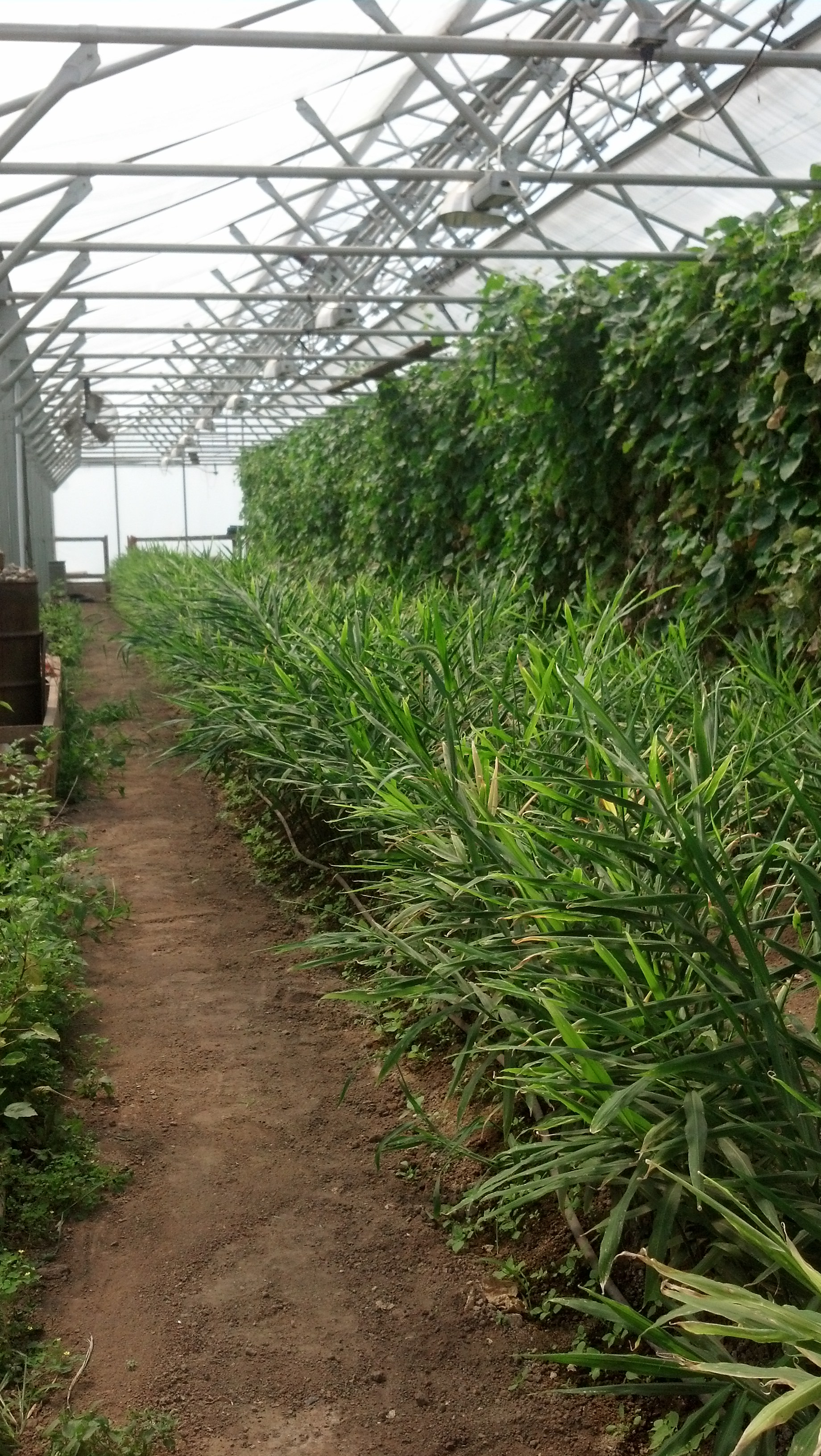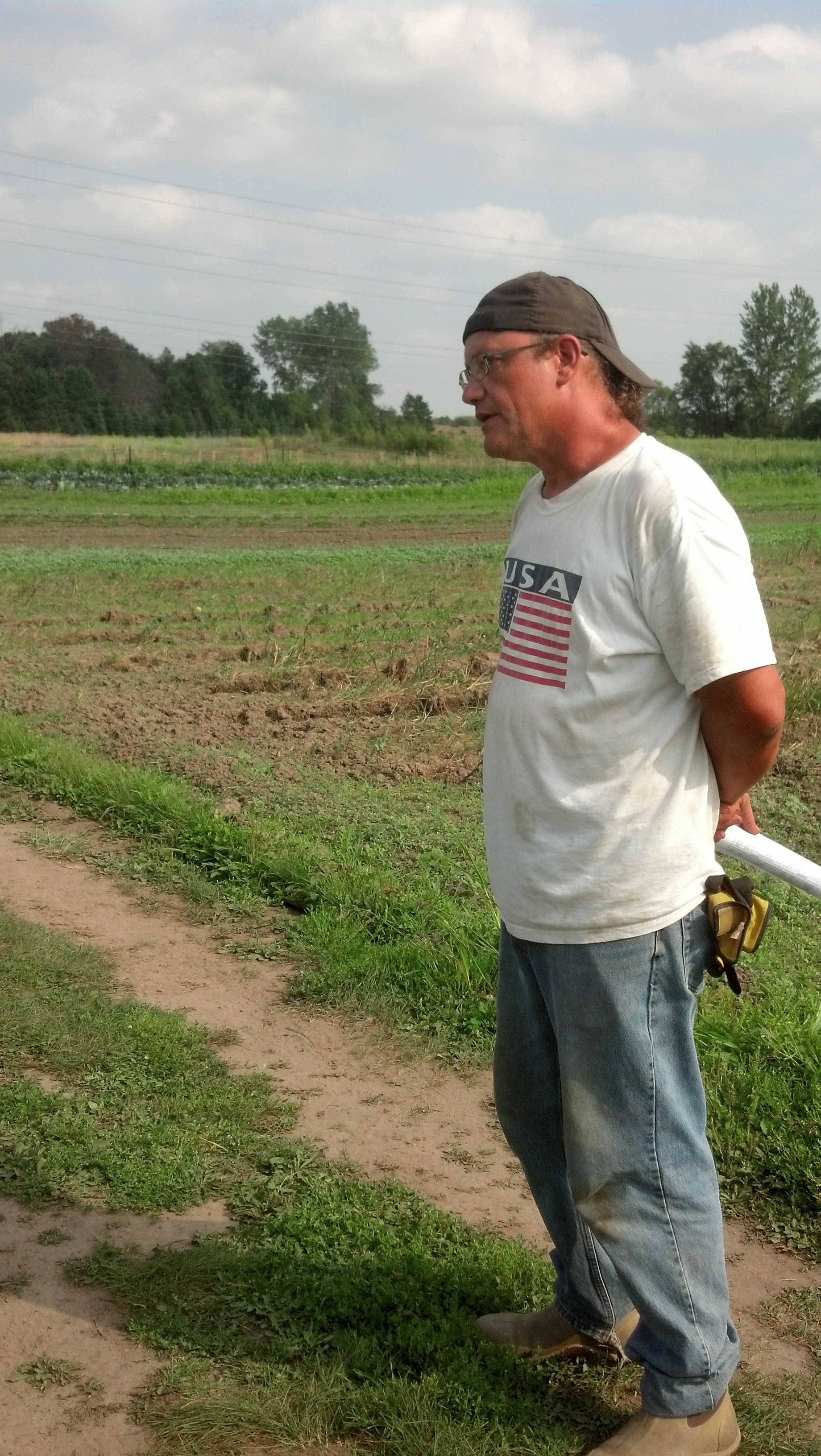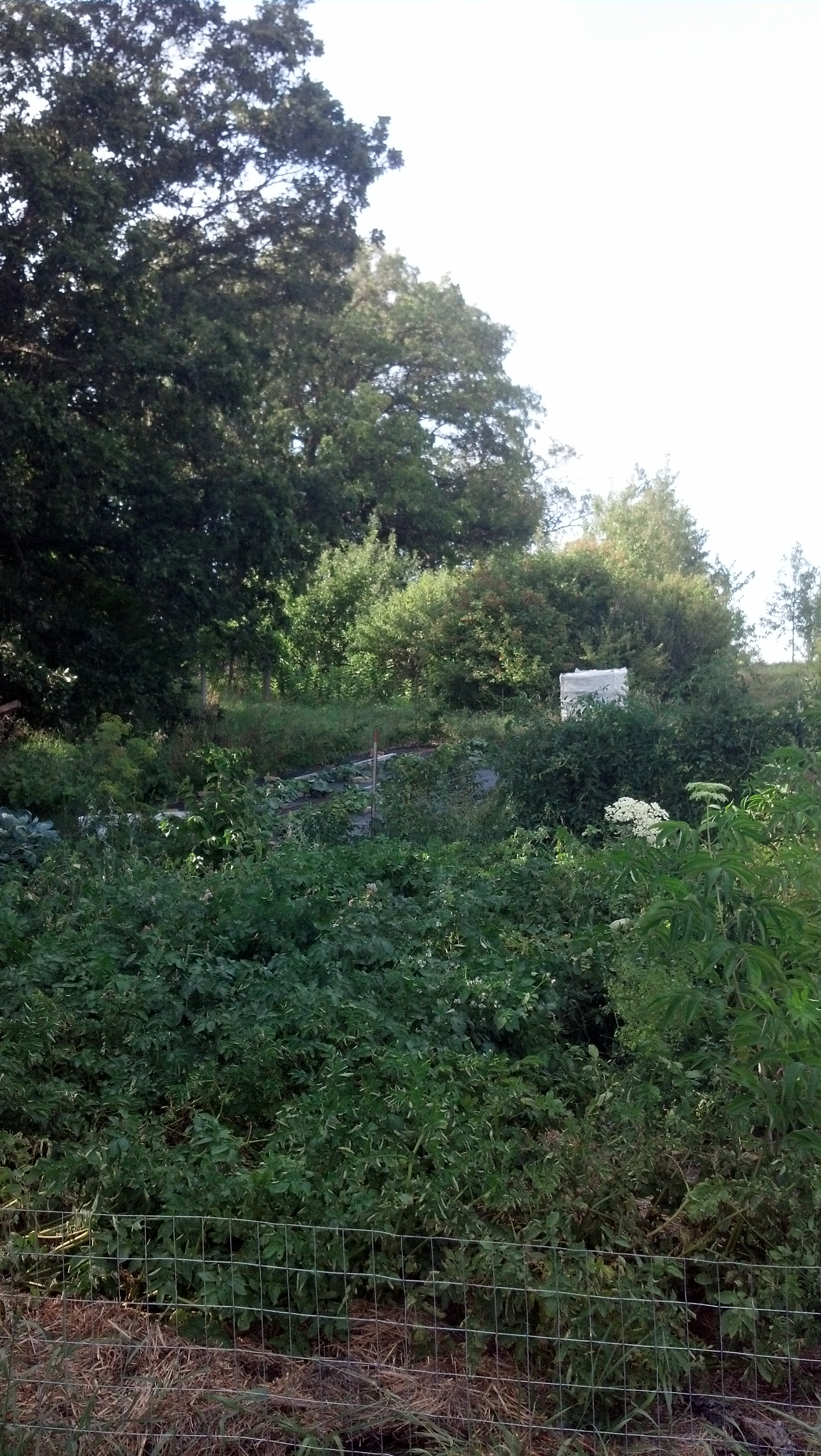Summer 2013 field tours – Minnesota and North Dakota

In the last few weeks I have been on the road in Wisconsin, visiting almost all of the Wisconsin farms and gardens involved in this years organic variety trials.It’s been fun and informative, and I have seen some varieties that are standing out at many locations as vigorous healthy plants – and I hope that will translate to an abundant harvest. I particularly have my eye on Australian Crawlers, which has produced huge vines at most locations. Others that look promising at this stage are Sweet Yellow Dumpling, Early Epicure, and Purple Valley.
This week and part of next, I am visiting Minnesota and North Dakota. Three Minnesota farms and five North Dakota farms are involved in trials this year. On Tuesday and Wednesday I was able to visit the three Minnesota farms, and tomorrow and Monday I plan to visit 3 of the 5 ND farms. I wish I could get to all of them, but North Dakota is a big state!
I started my Minnesota tour at Whitewater Gardens Farm, “a small, diversified farm on the edge of the Whitewater Wildlife Area in Southeast Minnesota”, owned by Lonny and Sandy Dietz. What a beautiful location – I hope to visit again. Sandy graciously showed me around their farm, including a greenhouse that – to my surprise – housed not only cucumbers and tomatoes but also ginger! Like all their other produce, they sell the majority of their ginger harvest locally. The potato plots at Whitewater Gardens Farm look to have done well through the season, and for most varieties the plants are starting to die back.

My next visit was to Dream of Wild Health farm near Hugo, close to the Twin Cities. As their website states, “our Dream is to help American Indian people reclaim their physical, spiritual, and mental health. We teach the old ways of growing food and living healthy lives.” Frank Haney, the farm manager, showed me the wild fruit and nut orchard that they are establishing. The main vegetable field had to be moved this year due to extreme rain that kept their usual field flooded for weeks, so planting was delayed and the potato plots and other vegetables are at an earlier stage of maturity. They’ve seen very little pest and disease pressure, and the plants look very healthy. It was interesting to see some differences here – Australian Crawlers is less of a standout, though still vigorous, and Langlade, a check variety, is struggling. Purple Valley, Austrian Crescent, French Fingerling and Butte were standouts for vine vigor.

My final Minnesota visit was to Paradox Farm, near Ashby in western Minnesota. Paradox Farm primarily focuses on livestock including goats and chickens, but they also have large beautiful vegetable gardens and fruit trees. Sue Wika & Tom Prieve kindly hosted a lunch which included their home-made goat chevre, feta, and milk from that morning – all delicious! Sue and Tom are both educators at Minnesota State Community and Technical College, and several of their past and present students came to share lunch and discussions about organic potato varieties. We had a wonderful and wide-ranging discussion about potatoes, organic farming, and education of the next generation of sustainable farmers. If this crop of students is any indication, the future of sustainable and organic farming is in good hands. Tom, an ecologist, and Sue, a sociologist, teach a Sustainable Food Production Production Program which immerses students in vegetable, fruit and livestock production. Sadly, this program was recently suspended from the MSCTC–Fergus Falls curriculum, but Sue and Tom are working to have it reinstated – read more at standforfood.com. Happily, the award-winning program is currently being supported by the Sustainable Farming Association of Minnesota, and interested students can find out more at http://www.sfa-mn.org/farmskills101/.
Thanks for reading! Next time, I’ll share stories of my North Dakota travels. Enjoy the late summer,
Ruth
This article was posted in Blog Posts.